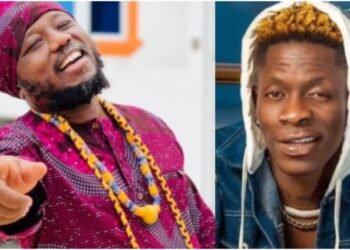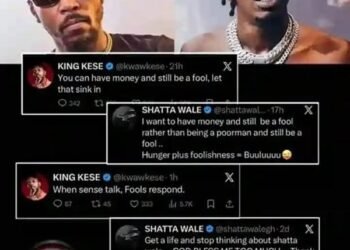In an era where technology has transformed the music industry, one would assume that connecting with fans has become easier than ever.
Social media platforms, streaming services, and direct-to-fan marketing strategies have created numerous avenues for artists to engage with their audience.
However, despite these advancements, many musicians still struggle to forge meaningful connections with their fans.
The advent of streaming services like Spotify, Apple Music, and YouTube has revolutionized how music is consumed.
While these platforms provide unprecedented access to a vast library of songs, they also create a sense of distance between the artist and the listener.
Unlike the days of vinyl and CDs, where fans had tangible products to hold, streaming often reduced music to mere background noise.
Nigerian Afrobeats queen Tiwa Savage has emphasized the need for artists to build relationships with their fans.
Savage explained that when artists build relationships with their fans, the fans can connect to other aspects of their lives aside from music.
“It’s not just about the music; it’s your fanbase and your brand. You’ve to think of your fashion. You’ve to be relatable. A lot of times, artists are just putting out music; they are not really connecting with the fans.
“I think it’s really important to connect with the fans. You are only good as strong as your team.”
Tiwa Savage
Social media has become an essential tool for artists to promote their work and engage with their audience. However, the sheer volume of content on platforms like Instagram, Twitter, and TikTok can lead to oversaturation.
Musicians struggle to stand out in a crowded digital landscape, making it challenging to foster genuine connections.
As artists gain popularity, they often become larger-than-life figures, creating a barrier between them and their fans.
This celebrity culture leads to unrealistic expectations from fans, who idolize musicians rather than see them as relatable individuals.
When artists become perceived as untouchable, it results in a disconnect that makes it difficult for fans to feel a personal connection.
In an age of curated online personas, musicians feel compelled to present an idealized version of themselves.
This pressure to appear perfect creates a façade that alienates fans who seek authenticity.
When artists fail to share their vulnerabilities or struggles, it creates a chasm between them and their audience, leaving fans feeling disconnected from the real person behind the music.
With the rise of data-driven marketing strategies, many musicians find themselves prioritizing numbers over genuine connections.
The obsession with streaming counts, social media followers, and ticket sales leads to a transactional approach to fan engagement.
In an effort to reach a broader audience, many musicians employ generic marketing strategies that fail to resonate with individual fans.
Personalized communication is often sacrificed for mass outreach, resulting in a lack of meaningful interaction.
Fans crave authenticity and connection, and when marketing efforts feel impersonal, it creates a sense of alienation.

Bridging the Gap
Despite the challenges, there are numerous ways musicians reconnect with their fans and foster a sense of community.
Sharing personal stories and experiences helps artists establish a deeper connection with their audience. By being open about their struggles, triumphs, and insecurities, musicians humanize themselves and create a relatable image that resonates with fans.
Instead of viewing social media as a promotional tool, artists should use it as a platform for genuine interaction.
Engaging with fans through live Q&A sessions, responding to comments, and sharing behind-the-scenes content fosters a sense of community.
Offering fans unique experiences, such as intimate concerts, meet-and-greets, or exclusive content, helps strengthen the bond between artists and their audiences.
READ ALSO: Countries Issue Travel Advisories For South Korea























